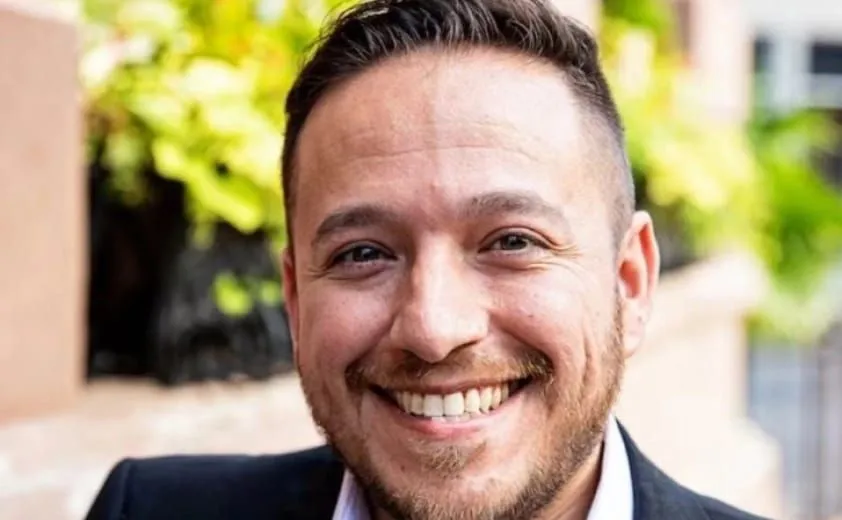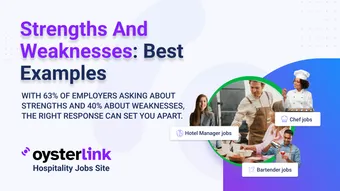Career advancement in hospitality often hinges on more than just hard work and ambition. Sometimes, it’s also about the people who guide you along the way.
This is something that Chris Style — a General Manager based in Myrtle Beach, South Carolina — has learned in his 20 years of experience in the industry. To this day, he credits his mentors as an integral part of his journey from a Reservations Agent to a seasoned General Manager.
In the interview below, he shares the lessons imparted by his mentors and his advice for young professionals eager to grow in today’s fast-changing hospitality landscape.
Guide us through your career journey. How did you start and did you always know that it was going to be hospitality?
Chris Style: So, I initially wanted to be a musician [at first]. I played the drums for 12 years, and I actually got into hospitality by chance. I was going to school for music and I kind of got burnt out [there], I guess you could say.
Fortunately, I have family members who worked in the hospitality industry, as it’s a major industry here in the Myrtle Beach area. At the time, my younger brother was working at a hotel, and he helped me get a job at reservations. So, I did that and worked for the same company for about three years.
I was in my late teens then, so you know, I thought I had the answer to everything — as we all tend to do at that age. One day, I woke up and told my boss, “I want to do something completely different.” So, I quit my job and went over to a military recruiting station here in the area.
Eight months later, I was undergoing basic training in the Marine Corps, and I’ll never forget that one moment that happened at about 4:30 a.m. We were going for a run, and on the fifth mile I was thinking to myself, “Gosh, you know, [working at] hotels aren’t that bad by comparison.”
So, I did my time in the military and when I got out, I went back to that same hotel job, working under that same boss I mentioned earlier. In fact, I’m grateful to him for taking me back when I asked him for another opportunity. And because of that sense of direction I gained while I was in the military, I grew to appreciate the hospitality industry.
Now, tell us about our current role and how you transitioned to that role.
So, from the time I got out of the military, I started back [in hositality] as a Bellman, then I filled in for the reservations department. Eventually, I was given the opportunity to be a Night Manager. I’ve been really lucky to have had good mentors along the way. My General Manager at that job exposed me to the financial side of hotel operations. I found it very interesting how every little thing affects your P&L.
Afterward, I was offered a Guest Services Manager position. It was for a well-established hotel in Pawleys Island, a little town less than an hour away from Myrtle Beach. While I was working there, I had the chance to really, really grow — again, thanks to having good mentors — as well as travel to different states for business matters.
From there, my career just kind of took off. I became Front Office Manager for a Doubletree [hotel] in Charleston’s Historic District, and I was also part of that company’s task force team. Eventually, I was promoted to General Manager of that hotel. Now, I’ve been working in General Manager roles for five years already.
What would you say is the key lesson you’ve learned from your career growth so far?
Chris Style: I think one of the biggest takeaways from my career growth is the importance of my mentors.
Those are the people who have truly shaped me and my career, and I want to emulate them and share the knowledge they’ve imparted to me with the people I’m working with today.
Speaking of the importance of mentors, what is your advice to young people who are entering the hospitality industry? How can they “get” their first mentor?
Chris Style: It’s all about communication. Communication is a two-way street, right? I think a lot of mentors these days could get too wrapped up in the day-to-day of things — be it those in hotels or other workplaces. So, they [people new to the industry] don’t always see the tell-tale signs of someone potentially being their mentor.
When you’re new, you tend to have this hesitation like, “That person’s a leader in my organization; I don’t want to approach them.” But I say — go and ask anyway!
A lot of times, people who have that mentoring spirit will be flattered and really jump on board to share their knowledge and experience with those who are genuinely hungry to learn.
Could you guide us through the hiring process, such as what can the candidates expect?
Chris Styles: So, my most recent experience was working at The Indigo Road Hospitality Group. One of the biggest things I learned there is their emphasis on their core values like internal hospitality, which is a major part of their hiring process.
When they do the hiring process, they focus on the candidate’s personality rather than just their knowledge. Of course, knowledge is still an important factor — don’t get me wrong — but it’s also about assessing how an individual would make colleagues and customers feel welcome.
That’s what the company means by internal hospitality, and it’s something that they really do well.
As a General Manager, what are your go-to interview questions for candidates?
Chris Styles: One of my favorite interview questions would be: “What’s something you’re really passionate about?” The reason why I like it is because when someone is genuinely excited about something.
From there, you can figure out how you [as the hiring manager] can build off that excitement and gauge if that person is going to be a good fit — not just for the company itself, but for the hospitality industry in general.
What are some of the things that a candidate can do during an interview to stand out and really present themselves in a good light?
Chris Styles: I think one of the big things is to really do your research on the job you’re applying for as well as the company. Job interviews are a two-way street; it’s not just for employers to see if a candidate is a good fit for the company.
Candidates should also look at it from the perspective of, “Is this company a good fit for me? Does it share the same ideals or goals? Do I see myself having a ‘relationship’ with this company long-term? Am I ready to commit myself to this?”
So, that’s how I think a candidate should really prepare for an interview. They should observe not only the person conducting the interview but also the company itself
Companies typically don’t go for people who job-hop, as that’s usually a red flag. So, make sure you do your research as a candidate to see if that company is going to align with your goals and ideals. That way, it works out for both you and your potential employer.
What are some positions that are lacking in the hospitality job market that potential job seekers can possibly focus their energy on?
Chris Styles: So, COVID really did a number on the hospitality industry, and it’s been really hard, even now, to get people back in the industry.
As far as hotel positions that are really needed right now, I would say it’s those boots-on-the ground, entry-level roles; whether that be Reservations Agents, Room Attendants or Guest Service Ambassadors.
Those guest-facing roles really make an impact on the guests’ experiences and are therefore still in demand, but unfortunately a little harder to fill in right now.
What is a realistic timeline for someone who starts out as, say, a Reservations Agent and then becomes a type of Hotel Manager?
Chris Styles: It depends, and I think it really goes back to having a good mentor who will not hold you back — even when the time comes for you to leave.
I’ve had good mentors who told me, “You know, I’m going to be sad to see you go but I’m not going to hold you back from bettering yourself and your career.” So, I think finding that type of good mentor is a key aspect of taking that next step in your career.
Timeline-wise, of course, every company and industry is different. But let’s use as an example someone who started out as a Reservations Agent and moved on to either a Reservations Manager or Reservations Supervisor. I’d say that would take anywhere from a year to maybe two years, on average.
How do you approach discrepancies between Gen Z’s approach to work and that of millennials and Gen X?
Chris Styles: I don’t think it’s a discrepancy per se; more of different “languages” maybe. The way I see it, we’re all trying to get to the same end goal but just taking different roads, and there’s nothing wrong with that.
I think we [from older generations] have to acknowledge that change is part of life and there are things one generation can learn from the other.
For Gen Z, my advice would be to take heed and have your ears open to what your mentor or supervisor is telling you because they have the experience. But also, don’t be afraid to speak up.
For example, you can say like, “Hey, you know, we’ve been doing Procedure A for so long and it’s great, it works — but there’s this new technology or app that we can use to really save on time and make things more efficient.”
Again, I think it’s all about maintaining a two-way street.
What can hospitality employers and job boards do to attract and encourage the younger generation to join the industry?
Chris Styles: One of the main things I’ve seen over the last few years is the use of the word “culture.” I think that’s been a big tagline, but it has to go beyond just being a tagline. You have to live and breathe it.
It’s sort of like with relationships, you know? You’ve got your honeymoon phase, but later the employee is going to see if a company’s culture is the real deal or just a front, if you will.
As for employers and job boards, you have to dig deep and ask yourselves, “Do we really believe in this? Are we going to follow through on it every day, all day?”
If you not, you might have to reevaluate the message you’re putting out there for job seekers.
I’m a firm believer in “What you see is what you get.” If something is a certain way on day one, then that’s probably how it’s going to be on the thousandth-or-so day.
How important is having a job description? Have you seen problems between what the role’s expectations were versus what people experienced in that role?
Chris Styles: No, not necessarily. I think we [hiring managers] have to be mindful and strategic about how we describe a job.
For me, a job description is mainly something to attract potential candidates, right? That’s the thing we use when we want to get their attention. Then once we’ve gotten their attention and invited them for an interview, that’s where we can expand a little bit more about the job.
This is especially true in the hospitality industry, where we can really make that personal connection — whether that be on a video call or an in-person interview. So, I think it’s doing job descriptions a disservice in that it’s being required to do too much.
We can approach job descriptions on a “less is more” sort of thing; exciting but enough to get a job seeker’s attention and invite them to apply.
In your career, how did you choose your employers? Like, what were some factors or green flags that our potential job seekers should look for when applying?
Chris Styles: Based on my experience in the hospitality industry, the biggest green flag for me is how employers approach employees’ career advancement.
I always ask potential employers during interviews, “What is your succession plan like?” Because I want to grow, I want to learn, I want to take on a leadership role in due time but not rush it. I want to know if this potential employer would have my back when it comes to my career growth.
As a General Manager, I always tell my team, “You know, I want you guys to learn how to do my job. I never want to hold knowledge back because when the day comes — once I'm able to move on to the next level — it’ll be an easier transition for whoever will be promoted to my current role."
One last question: What’s one thing you wish you knew before you started out in hospitality?
Chris Styles: One thing I wish I learned a lot sooner, specifically about management, is that being a good manager is a lot like being a good parent. I don’t mean that in a demeaning way, but see, you have a group of people that you’re responsible for.
Sometimes, you don’t see eye-to-eye but at the end of the day, you have to care for them. You want to see them succeed because if they succeed then you succeed, and you want to give them all the knowledge you can to help them prepare for the next step in their career.
However, this advice doesn’t just apply to those who are already in management-level roles.
You can be a good leader even when you’re not in a leadership position yet.
Going back to what we discussed earlier about how can one move up the ranks, this is a good mentality to have to prepare you for that next step. At the same time, you have to be humble and eager to learn. Those are definitely some things I wish I knew when I first started [in hospitality].
The power of mentorship in one’s hospitality career growth
As you can see, Chris Style’s career trajectory highlights the immensely important role of mentors in the hospitality industry. From his first boss taking him back post-military service to mentors teaching him financial operations and leadership, he attributes much of his success to their guidance.
So, for those looking to start or progress in the industry, it comes down to these:
- Actively seek people who could be your mentor
- Communicate openly with these would-be mentors openly
- Learn from their experience while being bold enough to contribute fresh ideas
If this interview inspired you to apply for a hotel management job, we’ve prepared an interview guide that’ll help you land such a role.
Also, if you want a step-by-step process for learning the essential skills, check out our full guide to becoming a Hotel Manager.






Loading comments...